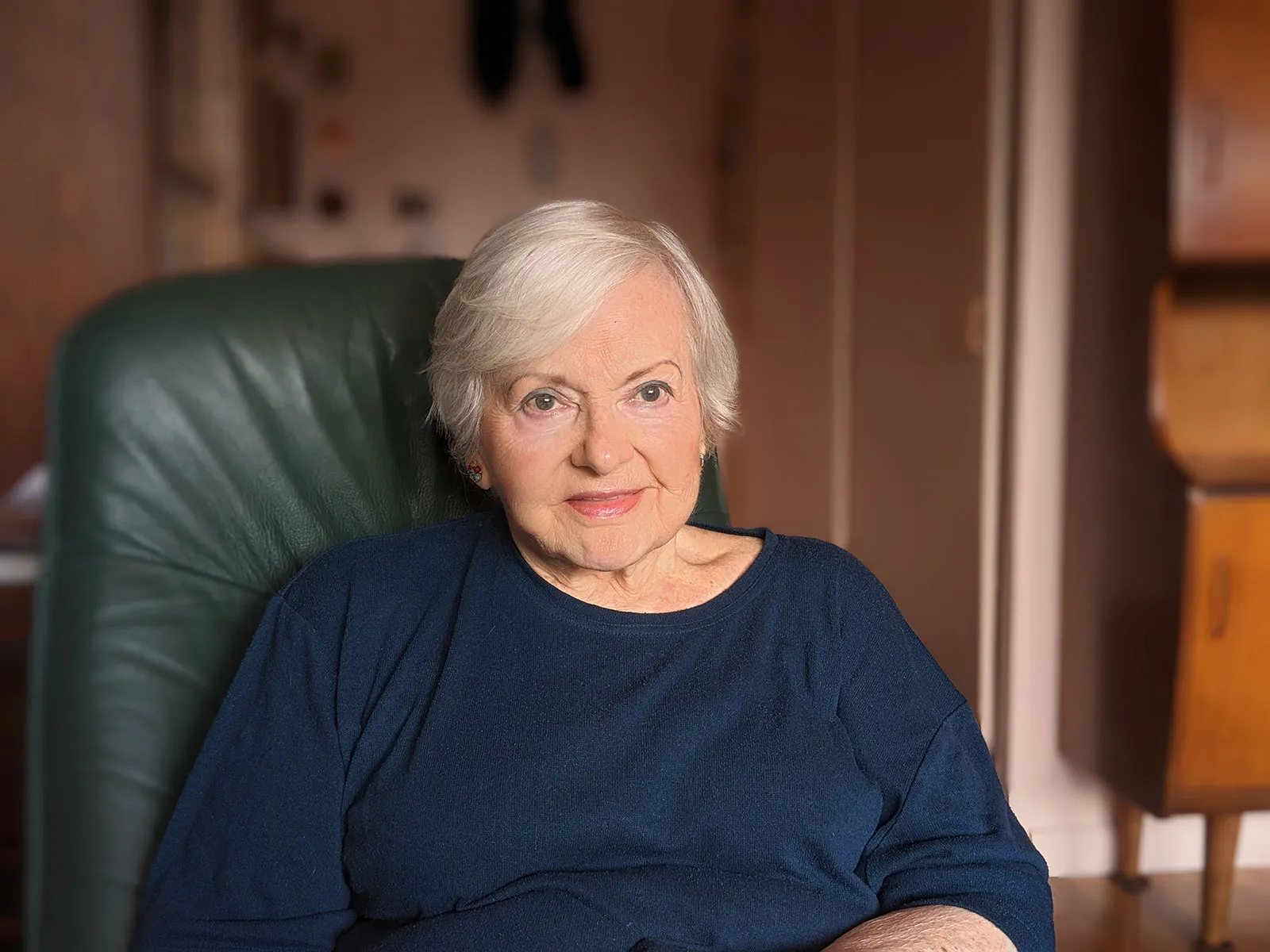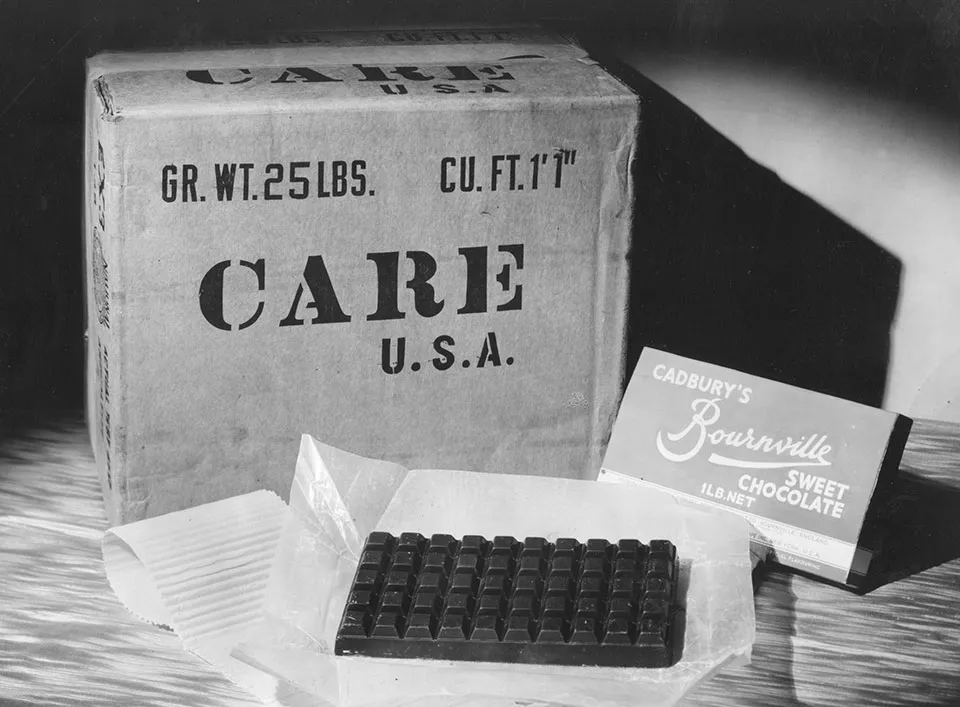At the age of 7, Areta Arlen lived happily in Ukraine with her parents and younger sister. Areta’s mother was a teacher, and her father was a lawyer doing pro-bono work with imprisoned Ukrainians. Because of her father’s work, Areta’s family was on a list to be sent to Siberia by the Soviets, but when the Germans saw the family’s name on the list, death was also a possibility. With no other options, the family fled west to Slovakia, where they stayed for a year and a half before being moved to a labor camp in Austria. The family was then forced to do manual labor for two years during constant bombing. Receiving CARE packages while displaced helped keep Areta and her family fed, clothed and hopeful. Among the many items in the CARE packages, the “enormous” chocolate bars remain Areta’s favorite.
Ukrainian families were the majority in the labor camps. Banding together, they formed schools, scout programs and a community library to maintain a sense of belonging between displaced families. After several years wondering what their future would hold, and enduring the loss of her sister and father, Areta and her mother arrived on Ellis Island with minimal belongings, one of which was Areta’s violin. Not caring much for playing it, Areta’s mother insisted she keep practicing, reasoning that “proper ladies play an instrument” and seeing it as a way to hold on to the life they once had. While going through processing, a guard noticed the violin and asked Areta to play for him. Fearing it was a test for entry into the United States, Areta played what she could to satisfy the guard’s request. When finished, the guard smiled and nodded for the pair to proceed. Areta and her mother were free to begin their new life in an unknown land.


